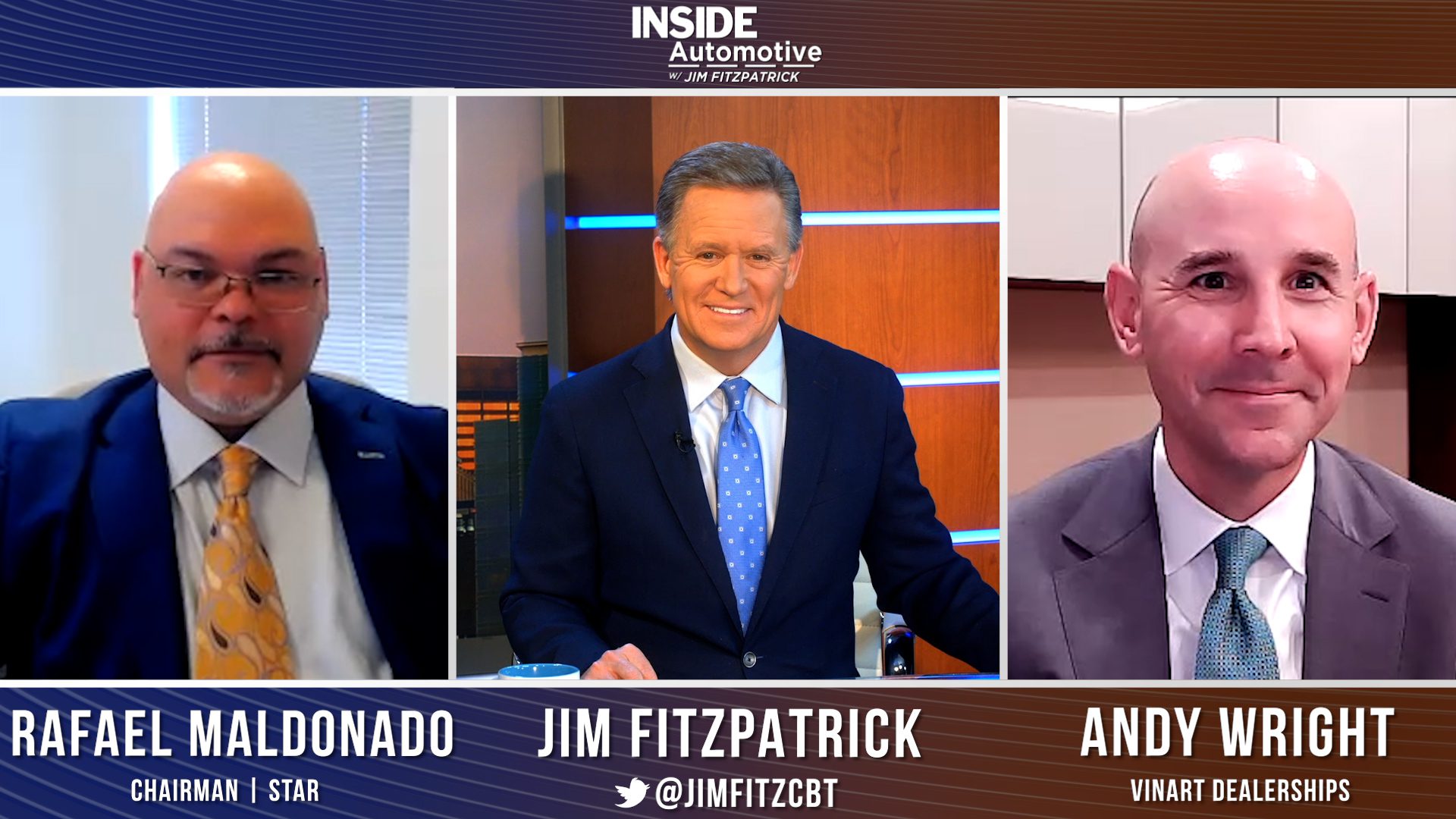Inside Automotive:


The last time we spoke to Andy Wright, Managing Partner of Vinart Dealerships, we discussed standardized technology across the automotive industry to compete effectively. This is the mission of STAR, the Standards for Technology in Automotive Retail, a non-profit, dues-paying organization that develops voluntary industry standards. Andy joins Inside Automotive today to dive deeper into this area with Rafael Maldonado, Chairman of STAR. Watch the complete segment here.
Headlines:
Sources close to the investigation said Fiat Chrysler Automobiles will agree to plead guilty to conspiracy and pay approximately $300 million to settle accusations that it evaded emission requirements for its diesel-powered SUVs and trucks. Over 100,000 RAM and Jeep vehicles built between 2014 and 2016 were reportedly involved in the alleged scheme, and the automaker has previously settled civil matters related to the accusations.
According to J.D. Power’s latest Electric Vehicle Consideration Study, 24% of survey respondents are now “very likely” to consider EVs when choosing their next car. This is an increase of 4% from last year and is likely driven in part by newer, more attractive models, including pickup trucks and SUVs. J.D. Power said the reasons some respondents are hesitant, include the uncertainty of where to charge the vehicles and a general lack of knowledge about EVs.
Volkswagen Chief Executive Officer Herbert Diess expressed some positivity this week, stating he sees a “clear improvement” in the ongoing semiconductor chip shortage. He said the automaker has gotten the negative supply issues, due to the conflict in Ukraine, under control and that he is optimistic about production throughout the rest of the year. Diess also confirmed that Volkswagen is looking for a site in the United States where it will build its new Scout SUV.
Volvo has opened a new facility in Illinois that will train dealers and customers on everything they need to know about battery-electric trucks. The facility will allow dealers to become certified electric vehicle dealers, and part of the training will include safety measures relevant to EV battery technology that is not relevant for gas-powered cars. Other companies such as Mack Truck have also opened some form of a training facility for battery-operated trucks.
News & Opinion:


Merger and acquisition activity has been bustling for more than a year, and the first quarter of 2022 has proved no different. Surging demand coupled with the pandemic and chip shortages has kept dealerships in control of the transaction, rocketing profits for single storefronts and dealer groups. And those profits have fueled blue sky value increases that are peaking even higher than the record-setting prices last year but at lower volumes. The Q1 Haig Report estimates that the blue sky value of a dealership is approximately 6% higher than at the end of 2021. For those who owned a dealership at the end of 2019, the blue sky value has likely increased by an astounding 117%. Read More


The automobile industry is facing significant disruption on multiple fronts. Access to data, sharing of data, and control of data have been at the center of much of this disruption. Dealers have been fighting DMS companies and OEMs to maintain control of their data. OEMs are becoming increasingly assertive in their demands for access and control of dealer data. The vendor community is caught in the middle trying to keep everyone happy while not missing out on opportunities to grow, prosper and innovate. Mandated vendor programs devised by OEMs, which choose winners and losers in the vendor world, have not achieved the desired goals of a better customer experience and increased insight into dealership operations because many dealers sign up for these programs to placate their OEM partners and then rarely or never use the systems properly. The solution to this entire situation is clear: Dealers, OEMs, Vendors, and DMS companies need to come together to devise a standardized convention for all relevant operational data points in the retail automotive ecosystem. Read More
Did you enjoy today’s automotive newscast? Please share your thoughts, comments, or questions regarding this topic by submitting a letter to the editor here, or connect with us at newsroom@cbtnews.com.
Be sure to follow us on Facebook and Twitter to stay up to date or catch up on all of our podcasts on demand.
While you’re here, don’t forget to subscribe to our email newsletter for all the latest auto industry news from CBT News.




